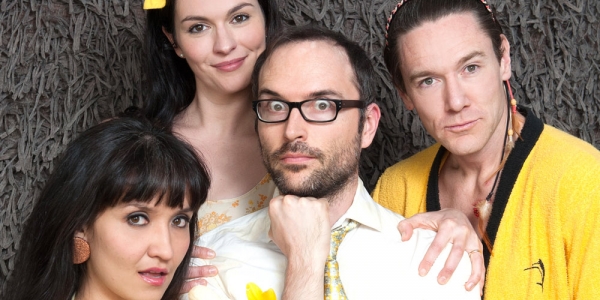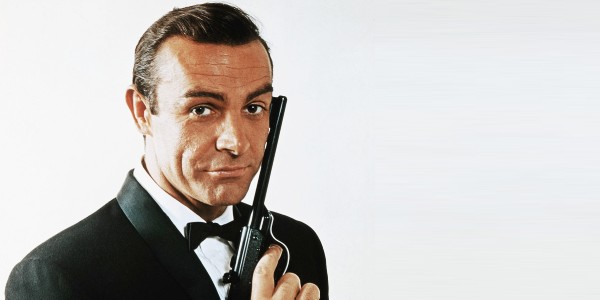Lewis and Waldorf make a bet and, as the story goes, nothing is ever the same again. According the playwright, Waldorf shakes things up for Lewis and Morgan by bringing his much more hectic, frenetic life into theirs and they undergo ‘an experience that allows them to return to normality unfettered’. No-one will be returning to the normality of conventional nuclear family life, we gather.
Without giving anything away, Prendergast says that Straight is ‘an absolute blast’. “It’s fucking funny,” he enthuses. “The set is a character in itself. Lewis and Waldorf do ‘the thing’ for different reasons. They’ve reached a part of life where they’ve lost a bit of excitement. They’re not reliving their youth or anything – there are lots of socio-economic and cultural reasons why they do this ‘thing’.”
Preparing for the role of Waldorf has involved a change of accent for the actor: he’s been playing a Scot in Midsummer and now needs to develop a northern lilt. Accents aren’t the biggest challenge, he reckons, that comes from performing for laughs. “Comedy is hard to get right. It’s hard rehearsing without an audience present. It’s a big challenge, comedy. We’re playing with the moment. It’s the hardest thing in the world to make the comic moments good and funny without an audience in front.” How then does an actor prepare for a comic role while still unsure as to where the laughs will come from? “You find a truth in it,” answers Prendergast. “Maybe a painful, essential truth. We see them in Lewis; there are some laughs in his discomfort. If our director finds it funny then between him and our own kind of experiences, we find our way.” Performing comedy in front of an audience, on the other hand, is a two-way thing. “We play with their energy,” notes the actor. “It’s up to the audience how we play as they give back to us, we play according to how responsive they are, finding the lighter moments or the truth in the moment. You can’t play comedy without the truth. You have to find the light within the darkness, the darkness within the light.”
Straight is naturalistic in style, something Prendergast is comfortable with in terms of his own acting approach, having a healthy film and television career alongside his stage work. He has appeared in a film with Ethan Hawke (Predestination) and Australian audiences will recognise him from television – The Miss Fisher Murder Mysteries and The Doctor Blake series. “My passion is film and filmic representations in theatre,” he continues. “Film usually has a strong story structure, a dramatic structure. I’m not a guy who seeks out over-stylised theatre, which can be quite popular in some circles.”
The actor is rapt to have recently joined the Red Stitch ensemble. “I’m pretty flattered to have been invited in. There’s lots going on in terms of how we build the company, maintain relevance. We’ve just started accepting government funding but it isn’t much. Otherwise we depend on membership and subscriptions.”
Red Stitch is unique in that the actors get to choose the plays the company produces. Outside of Red Stitch, notes Prendergast, actors are never given the power to ‘cherry-pick’ the plays they want to perform in, whereas Red Stitch Actors Theatre choose their own scripts. “We read 30 or 40 plays a season,” he explains. “Everyone attempts to read all of the plays then we have a meeting; 16 of us choose the plays we fall in love with, what we want to share the madness with.” What if someone desperately wants to do a work and the others disagree? “A play has got to have the support,” he answers. “One person often isn’t enough to get something up. The process is democratised in that way.” There has to be real passion for the play in question. “We don’t choose plays on the basis of popularity or their economic prospects. It’s whether it can sustain our passion.” The collective nature of Red Stitch means that the group also gets to handpick directors for their productions, resulting in, amongst many things, says Prendergast, a built-in and ongoing education for the actors.
BY LIZA DEZFOULI







